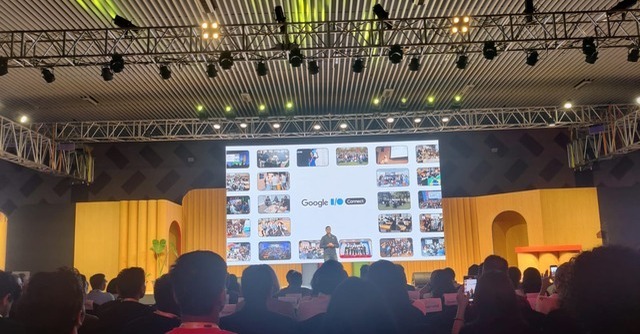
Google I/O: Google brings PaLM API to India devs, open-sources Indic language database


After announcing the Pathways Language Model application program interface (PaLM API) in March this year, Google today made it available for developers in India. This means that Indian developers will be able to build generative artificial intelligence applications using the state of the art large language models available through PaLM API. Additionally, Google’s set of tools and APIs, called the Makersuite and several features on machine learning platform Vertex AI is also available to developers in India. These announcements were made at the Google I/O Connect event held in Bengaluru on June 28.
To be sure, Google’s PaLM is a large language model that competes with OpenAI’s GPT series and Meta’s LLaMA. It was first announced in April 2022; Google’s generative AI chatbot Bard is based on the PaLM 2.0 that was released in the later part of 2022.
“The emergence of generative AI represents the single greatest opportunity many of us have encountered in our careers. At Google Cloud, our focus has always been to give developers the right tools and technology to build simply, efficiently and at scale. We are excited to bring our Gen AI capabilities for developers to enable them to create engaging content, synthesize and organise information, automate business processes, and to build amazing customer experiences,” said Will Grannis, chief technology officer, Google Cloud.

In another AI-related announcement, Google said that it will be open-sourcing the first set of speech data under Project Vaani, that comprises over 4,000 hours in 38 languages. Project Vaani has been created through a collaboration with Indian Institute of Science. Launched last year, the project seeks to create a data corpora of more than 150,000 hours of speech in different languages.
Further, Google also announced the launch of an accelerator program for Open Network for Digital Commerce (ONDC). As part of this initiative, Google is open-sourcing ready implementation of ONDC infrastructure and core APIs for access to retail AI technology and PaLM API. “By streamlining the onboarding process through efficient core APIs, this milestone addition to the open network empowers enterprises to focus on their core competencies,” said T Koshy, managing director and chief executive officer at ONDC. Additionally, the company has started credits program for organisations that enable ONDC to apply for a $25,000 grant.
Google has open-sourced SeeGull Database, a global stereotype benchmark to evaluate and mitigate biases in natural language processes. The big tech has also launched Address Descriptors to find and share addresses, landmarks, and area names.

